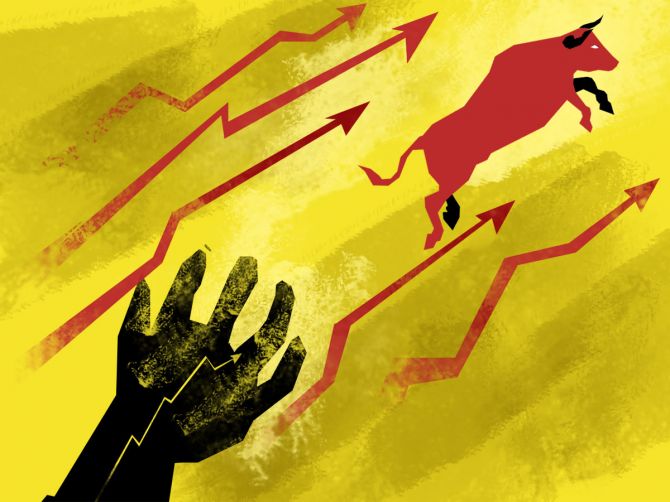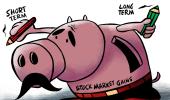On the surface, it appears that the US markets have done exceedingly well. However, a deeper analysis reveals the gains in the domestic market to be more well-spread.
Samie Modak reports.

The US market has been a standout performer this year, with the benchmark Standard and Poor’s 500 (or simply the S&P 500) gaining over 16 per cent during the first half of calendar year 2023 (CY23) in what was its best first-half show since 2019.
By comparison, India’s National Stock Exchange Nifty 500 has gained 6.4 per cent.
On the surface, it appears that the US markets have done exceedingly well. However, a deeper analysis reveals the gains in the domestic market to be more well-spread.
More than 65 per cent of the stocks on the Nifty 500 have gained this year versus less than 60 per cent on the S&P 500, notwithstanding its 10 percentage point outperformance.
The surge in the S&P 500 is dominated by large technology (tech) stocks.
These include Apple, Microsoft, Alphabet, Amazon, Nvidia, Tesla, and Meta, which have gained between 45 per cent and 185 per cent.
If one excludes the contribution to index gains made by these Big Tech firms, the S&P 500 underperforms the Nifty.
Interestingly, different investment themes have played out in the US and India.
While tech stocks have been hot property in the US, they have underperformed in India.
The Indian IT Index has gained about 4 per cent, while the tech-heavy Nasdaq has gained more than 30 per cent.
Domestic cyclicals, such as real estate, capital goods, automotive, and fast-moving consumer goods, have clocked strong gains in India, while they have underperformed in the US.
“The new ‘safe haven’ trade in CY23 now appears to have veered from the old playbook of defensive, value-oriented stocks and instead embracing the same large-cap, growth names in tech, communications, and consumer discretionary companies that suffered significantly in 2022 (think Apple, Microsoft, Meta, Nvidia, and Tesla),” observes Robert Jenkins, global head-research, Lipper.












 © 2025
© 2025